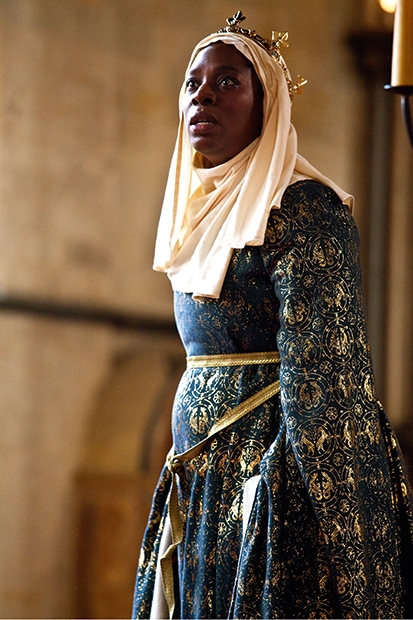Suppose Charles were to reign as a meddlesome, self-pitying, indecisive plonker. It’s a thought. It’s now a play, too, by Mike Bartlett. In his opening scene he bumps off Lilibet, bungs her in a box and assembles the family at Buck House to discuss ‘what next?’ Bartlett imagines them as stuck-up divs. William’s a self-righteous sourpuss. Kate’s a smug minx. Camilla’s a hectoring gadfly. Harry’s a weepy drunk. Charles is a colossally narcissistic nuisance. They’re too dim to understand the constitution so Camilla has to explain that a new reign commences with the death of the previous monarch and not at the coronation. (This is for the benefit of the audience, who are assumed to have the same poultry-level IQ as the Windsors.) The plot cranks into gear when Charles is asked to give royal assent to a bill he dislikes. He refuses. Westminster panics. Charles dissolves Parliament. Anarchists run riot. Abdication fever threatens Britain. And all because Charles has failed to draw any lessons from the biography of Charles I. Or even to have read it. Which seems improbable. As does the skittish impotence of the prime minister, who flaps ineffectually while the head of state smashes the state to smithereens. A real prime minister would buy Charles’s co-operation very easily by treating him like a troublesome backbencher and offering to promote his pet projects with a raft of upcoming legislation. But the play’s political antennae have been snipped off. Bartlett is after a Shakespearean atmosphere, so he uses stilted iambic pentameters, laced with archaisms. ‘What is it, husband, troubles you like this?’ He sometimes misuses words, ‘aloft’ for ‘aloof’, ‘distract’ for ‘distracted’, ‘holds’ for ‘warrants’. Sometimes he makes words up. William, awoken by a scream, says, ‘What a strange and ambulous night.’ When Charles meets his MPs, he treats them to this grammatical mind-boggler: ‘I am not prone to secrecy, but you have drawn that measure in my unsure heart.’
The cast of lookalikes is impressive, especially William (Oliver Chris), and Kate (Lydia Wilson). Richard Goulding’s Harry is too squat and pointy-faced. ‘I’m a ginger joke, bereft of value,’ he wheedles, though his brown quiff could do with a rustier tint. He gets involved in a weird, bitter romance with a beautiful, penniless misery named Jess. The royals fail to see that a toff-chav dalliance could generate excellent publicity for them so they freeze Jess out. Mind you, she’s bloody hard work. A charmless slob who dresses like a punk granny, she rebuffs a compliment from the world’s most eligible bachelor with, ‘Don’t patronise me.’ That’s because she loathes nobs. But when she’s excluded from the coronation, she gets all hurt and chippy about it. Nothing in this show makes sense. Not even Tim Pigott-Smith’s Charles, who comes across as a honking mass of frayed nerves. But he’s not ‘Charles’. No vocal ticks, no anxious cuff-adjustments, no bashful eyebrows, no querulous, lopsided smile. Instead he blusters and harrumphs and squints like a partially deflated Paddy Ashdown. I suspect that the director Rupert Goold ruled out a straight impersonation for fear the show might stray into caricature. Or become entertaining. Heaven forbid. A comedy in the West End! It’s such a shame. A script that breezily defames the royals ought to be great fun, but this cheerless, overblown little play seems to have been created by political numbskulls for those of similar calibre.
The Globe has a new drama about Harold Gillies, who pioneered the key techniques of plastic surgery during the first world war. Gillies was a zany genius with a love of practical jokes but the writer Howard Brenton can’t find space for him in this wordy pageant. Instead he focuses on military and social history. Brenton writes in the class-revenge style that was popular in his 1960s heyday. Proles are intelligent saints, toffs are bolshie morons. Nuance and subtext are beyond him. He can barely handle the simplest scene with intelligence or subtlety. We’re in a hospital. A soldier, with his face blown off but his eyesight intact, is visited by his parents. It’s not hard to foresee their emotional response. Joy at his survival, fear for his future and a profound urge to hide their anxieties and to show him love, strength and hope. Here’s what happens. The mother tiptoes towards her bandaged son as if approaching a spaniel with rabies. The father goes down like Ashley Young in the penalty area, and starts blubbing all over the carpet. The boy’s response is to announce his suicide. This sort of big-brass posturing defines Brenton’s dramatic method. Thankfully, the Globe’s programme is a wonderful artefact gleaming with nuggets of useful info. Disfigured veterans tended to become farmers if they lived in the country. In the city, they became cinema projectionists.







Comments